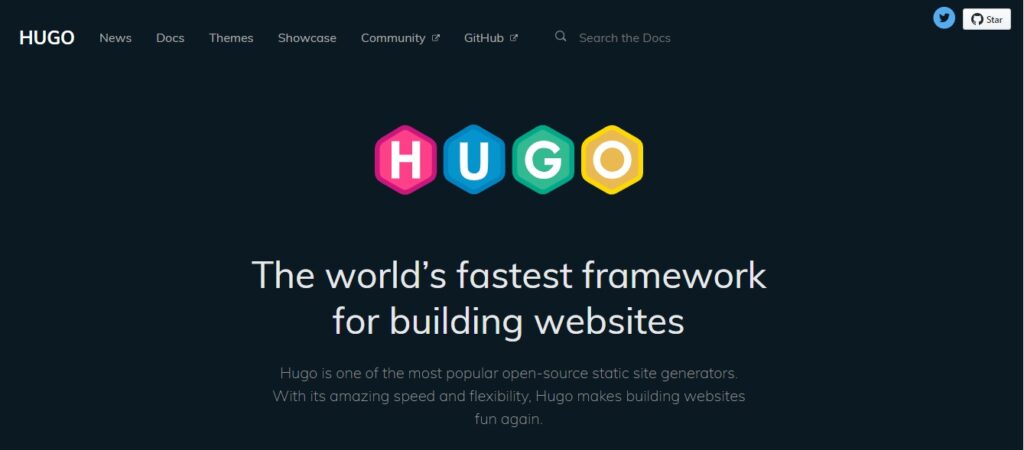
Hugo is a fantastic and fast website engine. It’s written in Go (aka Golang). One day, I visited a blog that is built on Hugo’s framework and I immediately charmed by the fluidity, well-structured and responsiveness of that website. Thanks again, aozaki.cc
Many great factors I have in mind about Hugo or other similar site generators is that I don’t need to pay a monthly fee for any hosting, don’t have to install an OS and any complex backend framework on a VPS to run my WordPress website. All I should do is to download Visual Studio Code (or any code editor you like) and start writing content, in pure markdown format, very easy to read and it also has an aesthetic feeling when you write on markdown. Then, you push your content/code to GitHub and your website will be deployed in any seconds. Back-up your website is never a concern because your data, and folder structure stays in your computer’s HDD and can be backed up to GitHub, your external drive, or cloud services such as Dropbox/GDrive.
Link to my Hugo-based blog: https://foxdie.netlify.app
As a WordPress (WP) user for many years, I know that this is recent technology (Static Site Generators – SSG) and there are many great advantages over WP, however, I don’t replace my main WP website with a SSG kind but instead, I’m starting a fresh blog with Hugo and learn many things with it, and still maintaining my main website.
For a proper description, Hugo belongs to “Static Site Generators” category of the tech stack, while WordPress can be primarily classified under “Self-Hosted Blogging / CMS”.
Some of the features offered by Hugo are:
- Run Anywhere – Hugo is quite possibly the easiest to install software you’ve ever used, simply download and run. Hugo doesn’t depend on administrative privileges, databases, runtimes, interpreters or external libraries. Sites built with Hugo can be deployed on S3, Github Pages, Dropbox or any web host.
- Fast & Powerful – Hugo is written for speed and performance. Great care has been taken to ensure that Hugo build time is as short as possible. We’re talking milliseconds to build your entire site for most setups.
- Flexible – Hugo is designed to work how you do. Organize your content however you want with any URL structure. Declare your own content types. Define your own meta data in YAML, TOML or JSON.
“Lightning fast” is the primary reason why developers consider Hugo over the competitors, whereas “Customizable” was stated as the key factor in picking WordPress.
There are pros and cons in nearly everything, but I won’t dig so deep into this. I learned that Hugo has fewer plugins/extensions support, and a not-so friendly template syntax, since it’s a new programming language (Go) and I’m mainly studying Python now, but I heard Go has been growing in popularity nowadays. When I have more time, I should learn it too.
My Hugo theme which I’m using now has all the extensions I need like a music player and built-in Youtube plugin, that can be called with a simple shortcode: {{< youtube 2LV9cigl1Iw >}} with 2LV9cigl1Iw is the ID of video. So I don’t have to think about it’s expansion in near future.
Read more at:

